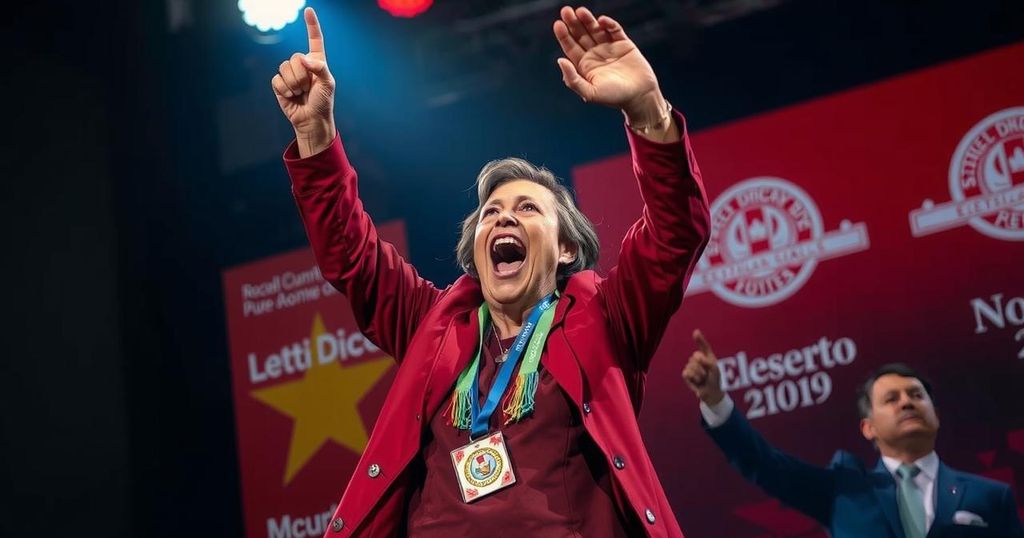Yamandu Orsi Elected President of Uruguay in Major Political Shift

Yamandu Orsi of the Broad Front coalition has won Uruguay’s presidential election, defeating Alvaro Delgado from the National Party. With 49.8% of the vote and a nearly 90% turnout, Orsi plans to address economic stagnation and rising crime. The current President has pledged a smooth transition to Orsi’s administration.
In a historic election, left-wing candidate Yamandu Orsi of the Broad Front coalition has been declared the winner of Uruguay’s presidential election following a closely contested runoff on Sunday. Orsi, who received 49.8% of the votes, defeated the center-right candidate Alvaro Delgado, who garnered 45.9%. With almost 90% voter turnout in a nation of approximately 3.5 million, the election reflected serious public concerns over stagnating economic conditions and rising crime rates.
During his victory address, Orsi emphasized the need for unity among all citizens, stating, “The country of liberty, equality and fraternity has triumphed once again,” while acknowledging the differing sentiments of those who did not support him. Delgado, conceding the election, expressed his congratulations to Orsi amid feelings of sadness. Current President Luis Lacalle Pou assured a smooth transition, offering his cooperation to the incoming administration.
Orsi, a former history teacher and mayor of Montevideo, inherits a political landscape reminiscent of former President Jose Mujica, known for his activism and progressive policies. This election comes after 15 years of leftist governance disrupted by the previous administration’s victory in 2019, which had raised pressing issues of economic and social reforms for the new government to address, including public safety and economic revitalization.
The recent Uruguayan presidential election marks a significant shift in the nation’s political landscape, with the Broad Front coalition reclaiming power after a period of center-right governance. Issues such as economic stagnation and increasing crime rates have dominated public discourse, pushing voters to pivot back towards the left in search of solutions. Orsi’s victory not only signals the return of leftist policies but also sets the stage for addressing vital concerns like income inequality and public safety that have emerged during the last administration. Furthermore, Uruguayan elections are characterized by high voter turnout, indicative of a politically engaged citizenry, which was evident in this election with nearly 90% participation.
In conclusion, Yamandu Orsi’s election as President of Uruguay signifies a major political shift, driven by the electorate’s demand for solutions to pressing economic and social issues. His commitment to inclusivity and acknowledgment of differing viewpoints within the electorate may foster a cooperative environment moving forward. The previous administration’s willingness to ensure a smooth transition is also a positive sign for Uruguayan democracy as the country navigates its future under new leadership.
Original Source: www.dw.com







